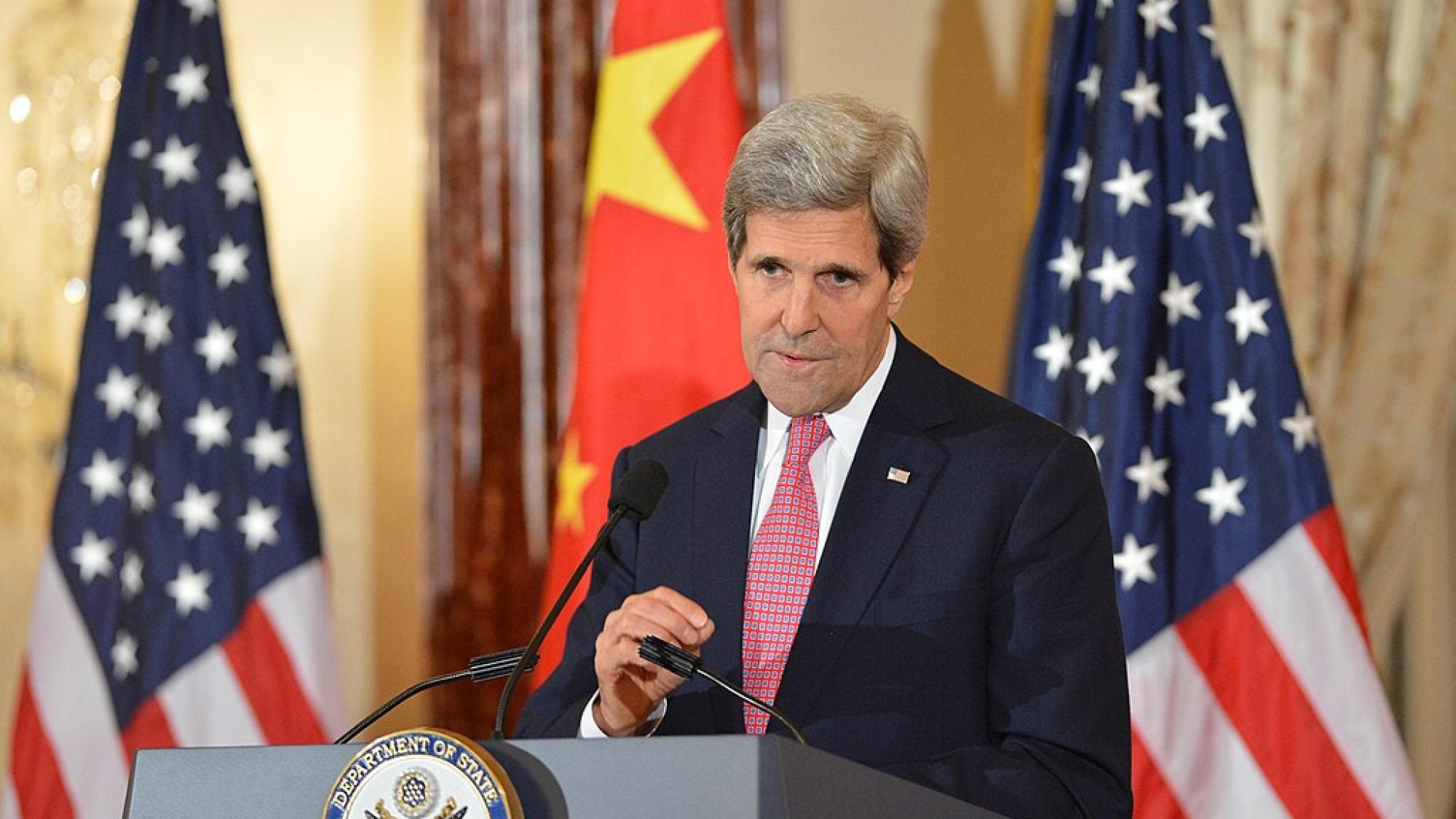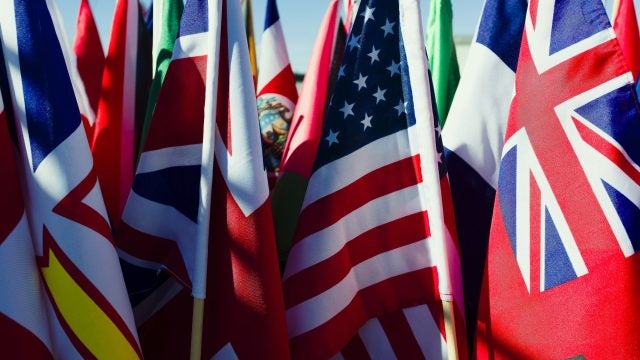
Title: Kerry’s First Visit to China: Interpreting North Korea Solicitation as a Softening China Strategy
Secretary of State John Kerry made his first official visit to China on April 13th. Though this was only a one-day stay after his ten-day visit to the Middle East and Europe and was largely geared towards addressing the recent escalation in the North Korea crisis, Kerry excited the Chinese by projecting signals different from those of his predecessor.
Former Secretary of State Hilary Clinton visited China 30 days after taking office as America’s top diplomat. Though Secretary Kerry kept China waiting for 41 days before he made his first official visit, the Chinese government still holds high hopes for him. The nationalist state-run Global Times even ran an editorial titled “Welcome Kerry, in the Hope that He Would Be Different from Hillary.”
It is well known that Clinton is not popular among Chinese foreign policy makers. As the most vocal advocate of the U.S. pivot and rebalancing policy, of which the Chinese government is resentful, she has been bluntly critiqued in China’s nationalistic Global Times as a figure who “deeply reinforced US-China mutual suspicion.” Believing the U.S. to be a puppeteer pulling strings in the region, the Global Times accuses the U.S. of meddling in disputes including the South China Sea issue and the Diaoyu/Senkaku Islands dispute, as well as the Korean Peninsula crisis. It harshly concludes that these troubles have made many Chinese “uncomfortable” when talking about the United States.
But the Chinese welcome Kerry. Even though Kerry is known to be more familiar with Europe and the Middle East and has seldom been seen as a China activist in the United States, he has been portrayed as a “China expert” among the Chinese media. China’s National Radio reported on its website about his connections to China—Kerry’s maternal grandfather, James Forbes, was born in Shanghai when the Forbes family was engaged in trade with China. However, the coverage did not mention that this trade included opium—a sore topic in China’s history.
Of course, family ties are not the only reason why the Chinese like Kerry. The Chinese government seems satisfied in that Kerry did not mention either the “pivot” or “rebalance” rhetoric during his stay in Beijing, who instead talked more about energy cooperation and Chinese investment in the United States. An editorial from the Global Times interpreted Kerry’s visit as the beginnings of a “robust, normal and special Sino-US relationship,” looking up upon Kerry as a diplomat who can define the Sino-US relationship in a broader perspective off of longer strategic interests. China National Radio even depicted Kerry as an Uncle Sam who would like to contribute to the “China Dream,” a concept recently popularized by China’s new leader, President Xi Jinping.
As an emerging power riddled with domestic problems, what the Chinese leadership fears the most is outside suspicion. Chinese leaders have made efforts to combat the China threat theory. China’s President, Xi Jinping, has put forward “a new type of relationship between major countries,” stressing that it is possible for two powers to co-exist and prosper at the same time as long as both sides are fully aware of and avoid challenging each other’s biggest concerns. President Xi made it especially clear that “the Pacific Ocean is large enough to afford two big countries on both shores,” which seems to be China’s rebuttal to outside observations that the U.S. and the emerging China are locked in a competition for dominance in the region and beyond. But this argument also indicates that there is room for China’s rising power, whether Washington likes it or not.
Though outside observers interpret Kerry’s softening tone as an attempt to solicit China’s help on North Korea, China seems to intentionally ignore that argument. State-run media spares few words for North Korea. The nationalist Global Times points out that though the Korean Peninsula is a current hot spot, the strategic suspicion among China and the U.S. deserves more attention since it is “spreading into the core of geo-politics in the Asian Pacific.” The more diplomatic People’s Daily does not mention a word about North Korea in its online coverage about Kerry’s visit.
Singling out North Korea in the coverage of Kerry’s visit might also be intended for an increasingly nationalistic internal audience. It makes the Chinese feel that Kerry gives them “dignity” only because of China’s rapid economic advancement and power status, rather than as an exchange to get China’s support on North Korea. The softening U.S. stance has been interpreted as how a declining United States seeks help from an emerging China.
Still, the Chinese are not so naïve as to be overoptimistic. State-run media points out that Kerry’s foreign affairs team is still in its infancy and that while he may not continue Clinton’s legacy, he will not deviate too far from her policies. It has also noted that “a mild Kerry” is only one of the political officials involved in foreign policy in the United States; even if his “mildness” is authentic, it cannot completely erase the suspicion the U.S. holds towards China. The Chinese are wary of American movements in the region. As the progressive Jiefang Daily argues, the United States is using regional crises in Asia to strengthen its alliances with South Korea and Japan. As the ancient Chinese proverb goes, when the snipe and the clam grapple, the fisherman profits. When China is mired in territorial disputes, it is the United States that benefits the most.
It seems that Kerry knows what the Chinese Communist Party likes. As the single ruling party of the largest developing country, economic development and political legitimacy are the Communist Party’s biggest concerns. Kerry is good at accommodating these demands. But US-China relations are not only a matter of diplomatic banquets, but also of strategic gaming. Secretary Kerry seems to be good at steering US-China relations away from confrontation, but he should also keep in mind the message President Xi tried to convey—seek cooperation after treating China’s fundamental concerns with respect.
Amelia Huang is a second-year graduate student at Georgetown University concentrating in Culture and Communication. She is also pursuing a graduate certificate program in Asian Studies at Georgetown.
Image Credit: U.S. Department of State from United States, Public domain, via Wikimedia Commons
This is an archived article. While every effort is made to conserve hyperlinks and information, GJIA’s archived content sources online content between 2011 – 2019 which may no longer be accessible or correct.
More News

This article compares U.S. and Chinese approaches to artificial intelligence (AI) exports in Africa and examines how these disparate approaches have produced both downstream benefits and challenges for the region.

On May 20, 2025, the World Health Assembly unanimously adopted the World Health Organization (WHO) Pandemic Agreement, an international treaty designed to strengthen pandemic prevention, preparedness, and…

As the Trump administration proposes a sweeping overhaul of the US foreign assistance architecture by dismantling USAID, the Millennium Challenge Corporation (MCC), and restructuring the State Department, there is an…